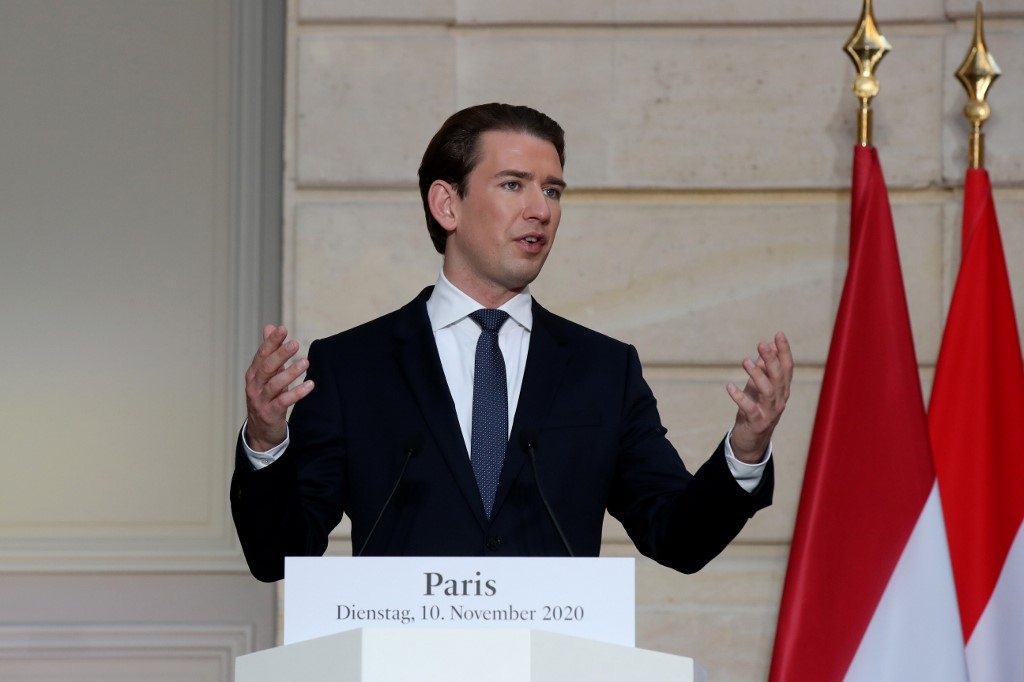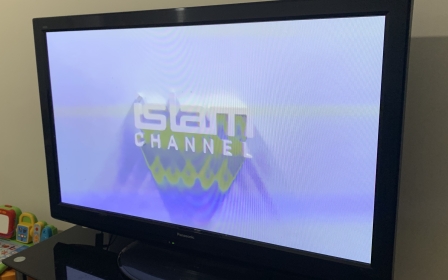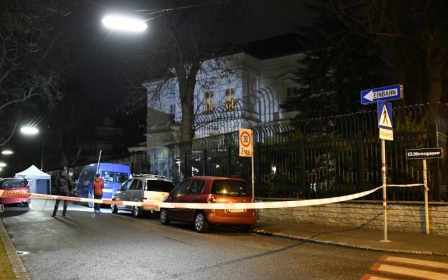Austria seeks to criminalise 'political Islam' as it unveils broad new anti-terror measures

Austria plans to introduce a series of anti-terrorism measures following last week's deadly attack in Vienna, including the criminalisation of political interpretations of Islam that are deemed to encourage violent extremism.
Chancellor Sebastian Kurz said on Wednesday that the measures were intended to protect society from extremists he described as "ticking time bombs".
The proposals include the ability to keep individuals convicted of terror offences behind bars for life, facilitate electronic surveillance of people convicted of terror-related offences upon release, and criminalise political activity that encourages violence.
Kurz said the measures, which will be brought to a vote in parliament in December, take a two-pronged approach, targeting both terror suspects and the ideology that drives them.
"We will create a criminal offence called 'political Islam' in order to be able to take action against those who are not terrorists themselves, but who create the breeding ground for them," Kurz tweeted after the meeting.
He also said the government planned to simplify the process of shutting down associations or mosques deemed to play a role in radicalisation, and to enable the public to report potential "jihadist" activities on an online platform.
A central register of imams will also be created.
Also among the measures is a proposal that would make it possible for authorities to strip people of Austrian citizenship if they are convicted of terror-related offences.
Vice-Chancellor Werner Kogler, who leads the junior coalition party, the Greens, said the new measures would apply to "all forms of terror", including "terror by neo-Nazis".
Homes and businesses raided
On Monday, almost 1,000 police and intelligence service officers raided homes, businesses and associations allegedly tied to the Muslim Brotherhood and Hamas, seizing millions of euros in cash across four provinces.
Prosecutors insisted the raids were not connected to the attack last week, but were the result of an investigation stretching back more than a year.
Four people were killed and 22 wounded when Kujtim Fejzulai, described as a 20-year-old Islamic State sympathiser, opened fire with a Kalashnikov in a busy area of the Austrian capital the night before the country went into a new Covid-19 lockdown.
A dual Austrian and Macedonian national, Fejzulai had been convicted of a terror offence in April last year for trying to travel to Syria to join the Islamic State group.
An investigation has been launched into why Austria didn't have Fejzulai under observation despite being tipped off by Slovakian authorities that in July he had tried to purchase ammunition at a shop in the Slovakian capital, Bratislava.
Austrian authorities said they have been working closely with the FBI on the investigation, and the State Department said separately that US Secretary of State Mike Pompeo talked on Wednesday with his Austrian counterpart, offering further support from Washington.
The attack in Vienna followed an attack in the French city of Nice in which four people were killed.
France has also begun to close mosques and is cracking down on organisations it suspects are spreading hatred.
However, there are fears of collective punishment and rising Islamophobia in France, especially after Barakacity, a prominent charity, was dissolved in late October.
Middle East Eye propose une couverture et une analyse indépendantes et incomparables du Moyen-Orient, de l’Afrique du Nord et d’autres régions du monde. Pour en savoir plus sur la reprise de ce contenu et les frais qui s’appliquent, veuillez remplir ce formulaire [en anglais]. Pour en savoir plus sur MEE, cliquez ici [en anglais].





